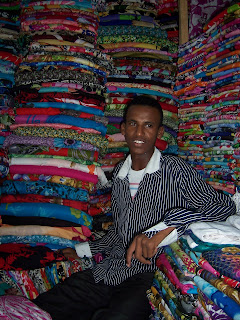Worst:
1. Seeing people die who should not die.
It is one thing to see a person die who has come to the hospital in old age who has lived a good, long life and is ready to pass on. It is a very different thing to watch a 26 year old man die of abdominal TB, to see a 20 year old female die of congestive heart failure, or to see infants die in utero or immediately after birth. I knew I would see death before I even came, but it is still hard to watch people pass away when if they were living other places they would have so many other available treatments.
2. Oh, the frustrations of teaching.
Perhaps I just appreciate all my professors from home so much more after this summer. I definitely did love getting to work with the students and help many of them develop their English, but oh there were also those days where I did not want to speak to another student. Not doing homework, coming 30 minutes late to class or not showing up at all, missing exams, cheating during exams....
3. Poor quality care
Edna's hospital provides the best care in the entire country, and it has been amazing to work with the various staff members. However, even being the best in the country, some of the hospital standards can become a bit slack at times. I have a bit too frequently seen staff and students make poor decisions and provide less than quality care (i.e., not taking a fetal heart rate on pregnant women, going to dinner when a woman is hemorrhaging, not rotating or bathing stroke patients, failing to take vitals on patients, and on). While this hospital is amazing and the care here is better than the government hospital, there is still room for improvement.
4. Cultural frustrations
For all my thoughts of cultural competency and working within the current structure, there were definitely some times I simply wanted to hit my head against the wall in response to what I was seeing. As I have mentioned before, the issue of consent was huge during my time here. It was unbelievably frustrating to see women in need of a cesarean section waiting for hours as their husbands were found, convinced, and finally agreed for their wives. The gender issues in the society here, I feel are huge. It makes me sad to think of the many students who will get married in a few years and have stunted careers as future students/nurses/midwives as they are pushed into the role of housewife and child manufacturer.
Best:
1. Babies
As you might have picked up by my various blogs by now, I do love babies! I have loved getting to see, learn, and do so much with babies. Getting to learn and then help teach neonatal resuscitation skills to the nursing students, "catching" a baby from utero, helping mothers breast feed, and laughing at the over sized newborn outfits.
2. Passionate students
For all my teaching frustrations, and seeing some laziness in the students while working in the hospital, there is a great number of students who are truly passionate about their work and gaining further education. There is a smaller group of students I provided extra tutoring for because they were willing to take a bus back to the hospital many afternoons for extra help with their studies. I have absolutely loved working with and teaching these students.
3. Somaliland people
As a whole, the people of Somaliland have been absolutely wonderful and hospitable. From the students and staff at the hospital to random people we have met while riding the bus to the market, everyone is unbelievably kind. Getting to view the excitement around the elections and experiencing the spirit of Somaliland has been absolutely wonderful. As a whole, I have found the people here to be unbelievably welcoming and friendly.
4. Somaliland "family"
Edna always says that while we stay here, we are her daughters and sons. She also frequently calls her dinning table the UN dinning table because of the number of nationalities it holds. At dinner tonight alone, eight countries were being represented. These people who I live with upstairs have become my family over the past two months. The people are constantly shifting in and out (me included as I am not leaving) of Edna's hospital as various volunteers, visitors, and staff members come and go. I cannot imagine what my time would have been like here without having all of these friends to work with on teaching and figuring out various situations downstairs and debriefing at the end of the day. Seeing others with the same passions as myself and sitting each day with the most inspiring lady who is still working hard at 73 years of age has been amazing.
Some random photos:
Ice cream (or what they call ice cream here) with Randi-

Dr. Abdikani teaching the girls on rounds about eclampsia-

Asha!!! One of my tutoring students-

Post-teaching neonatal resuscitation. They wanted a photo shoot-

My favorite Canadians, Lauren and Harrison! I don't think I would have survived the summer without them. I will definitely miss them.

Well, that's all. Tomorrow morning I head home- Hargeisa, Berbera, Djibouti, Dubai, Frankfurt, DC, St. Louis, and then HOME!!
































